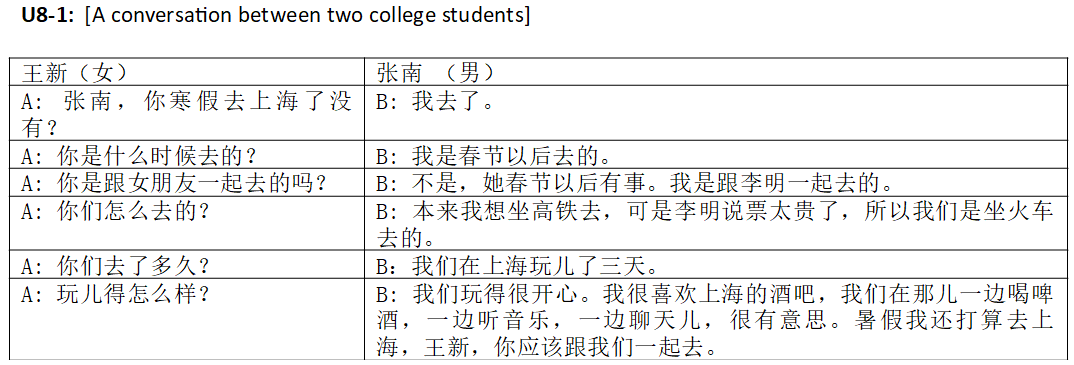Listen to the passage and choose the appropriate answer.

When did the boy go to Shanghai?
a. before winter break b. before the Spring Festival c. after the Spring Festival
c. after the Spring Festival
You might also like to view...
Elsa no tiene ______________________ para conducir, pero sabe conducir muy bien.
Fill in the blank(s) with the appropriate word(s).
Read the two sentences given and choose whether A or B correctly indicates all the words that should be capitalized
a. The pub was filled with university students celebrating a football victory. b. The Pub was filled with University students celebrating a Football victory.
Once a student has asked questions about a topic, which of the following is the student recommended to do?
a. Choose those questions that he or she finds most interesting. b. Write the conclusion. c. Write the introduction. d. Stop brainstorming.
Keeping a journal is always a personal endeavor and should serve personal needs. Many people use journals to record their impressions of daily events and people that they meet. Serious readers and students sometimes keep reading journals, or they record in their personal journal what they have been reading. Exactly what they record in these reading journals is determined by their needs. Will they
be writing essays about the readings or taking tests? Do they merely want a record of what they read because they have a goal of reading all of one writer's mystery novels? Do they write their own stories and are studying the ways various writers handle plot or character, and so forth? Since everyone might have different reasons for keeping a reading journal, each person needs to decide how to make the practice personally profitable. The purpose of the paragraph is a. to persuade the reader to keep a journal and record according to individual needs. b. to entertain the reader with information about personal journals. c. to explain to the reader that keeping a journal is a necessity for scientific writing. The tone of the paragraph is a. humorous. b. condescending. c. persuasive.